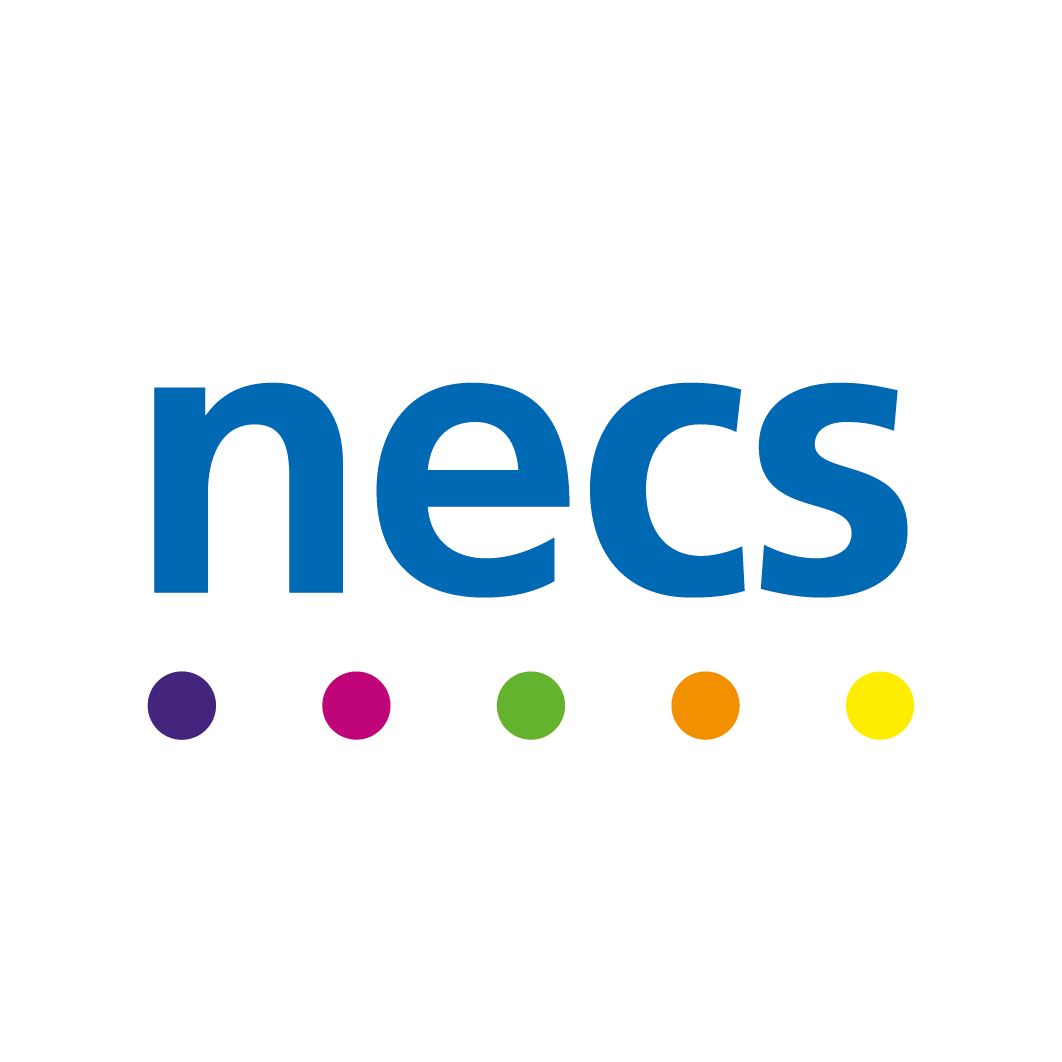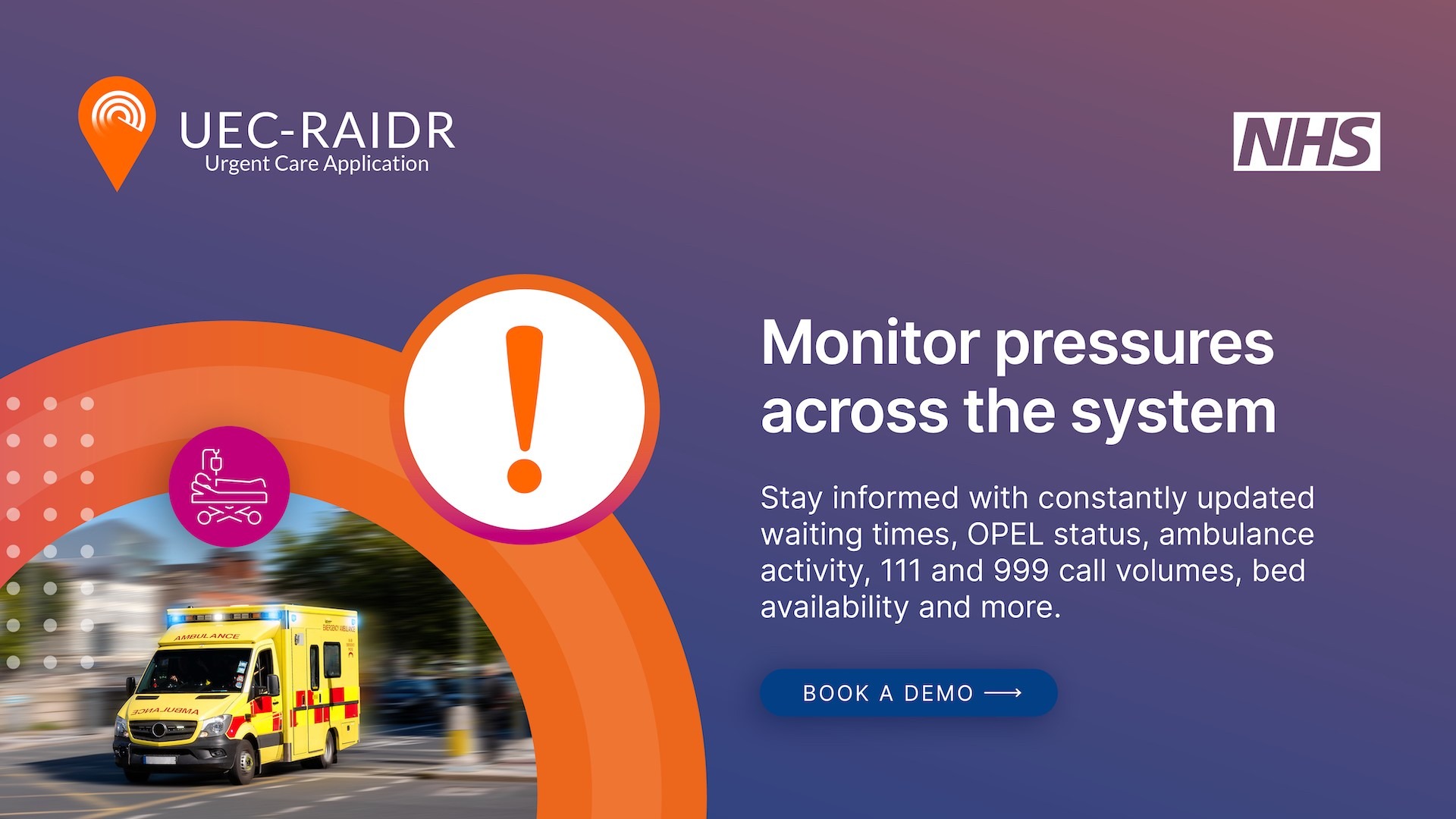Gary Collier, Head of Urgent and Emergency Care Services at NECS, on how UEC-RAIDR, one of our innovative digital apps, will help to tackle pressures this winter.
“As we head towards the autumn, it’s never too early to consider winter priorities across the system. There is a national expectation from NHSE that every ICS in the country has a System Coordination/ Control Centre (SCC) in place, with a minimum set of requirements, to help meet winter pressures.
“At NECS we pride ourselves on being part of the NHS. We are leading the way on the development of innovative digital products for those working in the NHS and have a firm focus on best possible outcomes for our customers and their patients. Our UEC-RAIDR app has not only helped to define the requirements for integrated care systems, but it is live, has a proven track record of success and is part of our SCC customer offer.
“NECS began developing UEC-RAIDR in 2013. We have continually evolved and developed the product over time, working in collaboration with those who use it, including clinicians and operational staff across urgent and emergency care networks, to make sure that it is effective in tackling the challenges posed at times of pressure.
“UEC-RAIDR absolutely has a system-wide support role. It offers crucial and relevant data and intelligence and near-real time information on OPEL levels, ambulance activity, 111 and 999 call volumes, ED, waiting times, available beds and more. It shares whole-system and site-specific helicopter views; able to pull data from granular services, including primary care, GP OOH, Pharmacy, and aggregates this up to place, locality and ICS level. The inclusion of real-time data in context means, for example, that ambulance data is refreshed every 120 seconds.
“This level of visibility means that UEC-RAIDR not only offers transparent, reliable and consistent reporting, but it fosters shared understanding and mutual aid across wider systems (including Primary Care Networks and Ambulance Services) where collaboration means that requests for available help are prioritised. It also has configurable Emergency Planning Resilience and Response (EPRR) messaging groups to aid rapid regional communications.
“Staying ahead of policy is key in our evolution of UEC-RAIDR as a product, as is consideration of how we best support our customers to ensure they meet changing national requirements and expectations. The strategic ambitions and drive of NECS to improve patient care have led to us looking at new and exciting ways to predict activity in a system using data and intelligence, so that our customers have visibility and awareness of the evolving situation around them – and can ultimately act quickly to mitigate any potential future surges.
“To enhance the original UEC-RAIDR app, NECS has developed an enhanced SCC offer for customers which includes a number of Dashboards designed to support SCCs, providing a full overview of trends occurring across the system – i.e. that local SCCs can monitor the urgent and emergency care situation across the system, giving them the ability to see where pressure is increasing and decreasing and to quickly make informed decisions about the safety of patients who need urgent and emergency care.
“Ultimately our UEC-RAIDR SCC offer provides as near to real time as possible, crucial information on capacity and pressure across providers within an integrated care system (ICS) footprint. UEC-RAIDR also works effectively with other key NECS products such as OPTICA, Capacity Tracker and other NHS products including Foundry and NHS Pathways Directory of Services, with a capability of linking to NHSE tools and providing further functionality.
“At NECS we take pride in understanding the NHS and the challenges faced by our customers, innovating in a well-informed way. Our goal is to provide digital solutions which support operational staff, reduce the burden of reporting and aid preparation for winter.
“With the requirement that every integrated care system has a SCC in place, now is the time to act, making sure that new systems have enough time to embed, are configured for local circumstances and those using it are fully trained to reap the rewards from our product.”
To find out more contact the UEC-RAIDR team on necsu.uec-raidr@nhs.net


